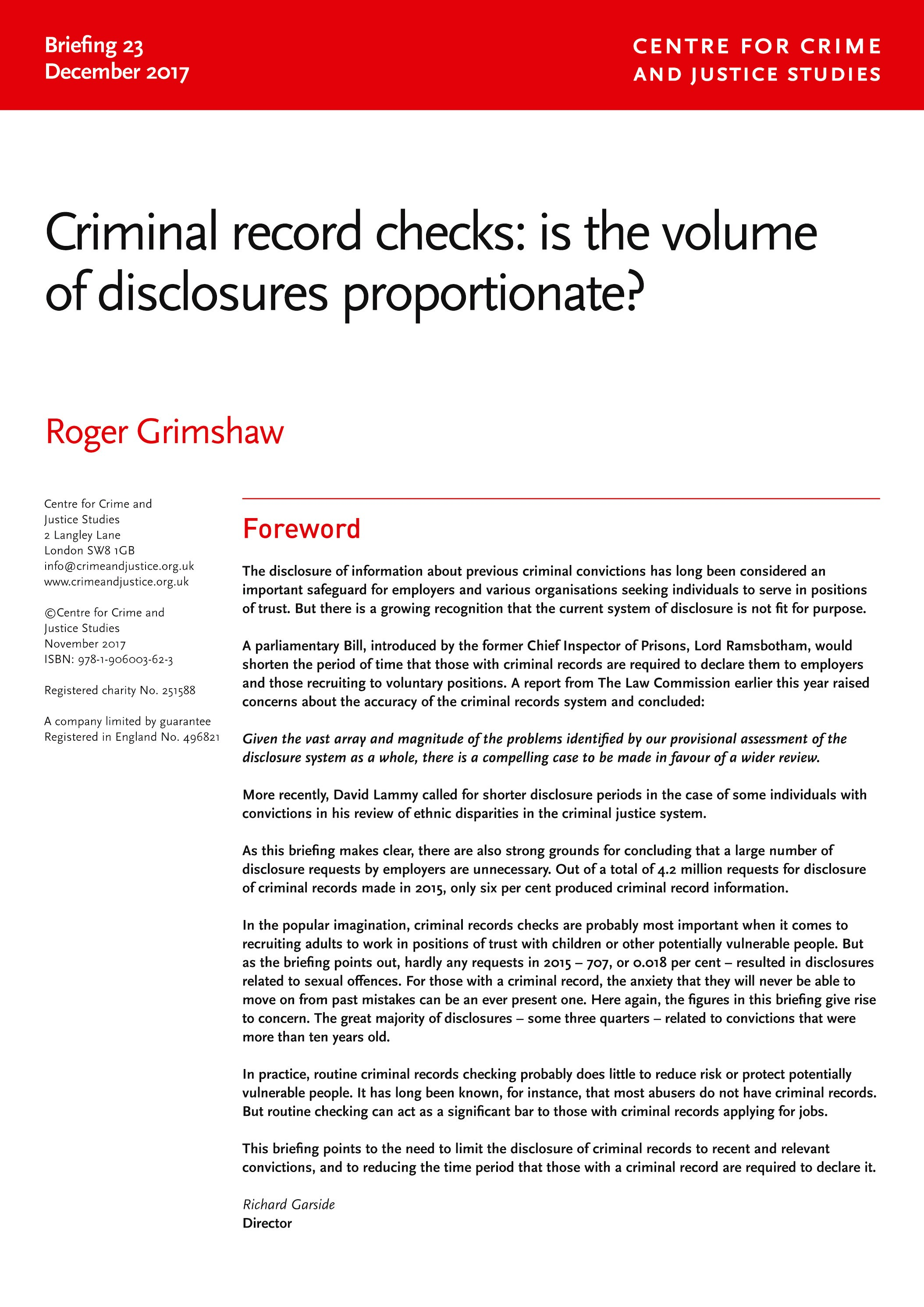The disclosure of information about previous criminal convictions has long been considered an important safeguard for employers and various organisations seeking individuals to serve in positions of trust.
But there is a growing recognition that the current system of disclosure is not fit for purpose.
A parliamentary Bill, introduced by the former Chief Inspector of Prisons, Lord Ramsbotham, would shorten the period of time that those with criminal records are required to declare them to employers and those recruiting to voluntary positions. A report from The Law Commission earlier this year raised concerns about the accuracy of the criminal records system and concluded:
Given the vast array and magnitude of the problems identified by our provisional assessment of the disclosure system as a whole, there is a compelling case to be made in favour of a wider review.
More recently, David Lammy called for shorter disclosure periods in the case of some individuals with convictions in his review of ethnic disparities in the criminal justice system.
As this briefing makes clear, there are also strong grounds for concluding that a large number of disclosure requests by employers are unnecessary. Out of a total of 4.2 million requests for disclosure of criminal records made in 2015, only six per cent produced criminal record information.
In the popular imagination, criminal records checks are probably most important when it comes to recruiting adults to work in positions of trust with children or other potentially vulnerable people. But as the briefing points out, hardly any requests in 2015 – 707, or 0.018 per cent – resulted in disclosures related to sexual offences.
For those with a criminal record, the anxiety that they will never be able to move on from past mistakes can be an ever present one. Here again, the figures in this briefing give rise to concern. The great majority of disclosures – some three quarters – related to convictions that were more than ten years old.
In practice, routine criminal records checking probably does little to reduce risk or protect potentially vulnerable people. It has long been known, for instance, that most abusers do not have criminal records. But routine checking can act as a significant bar to those with criminal records applying for jobs.
This briefing points to the need to limit the disclosure of criminal records to recent and relevant convictions, and to reducing the time period that those with a criminal record are required to declare it.
